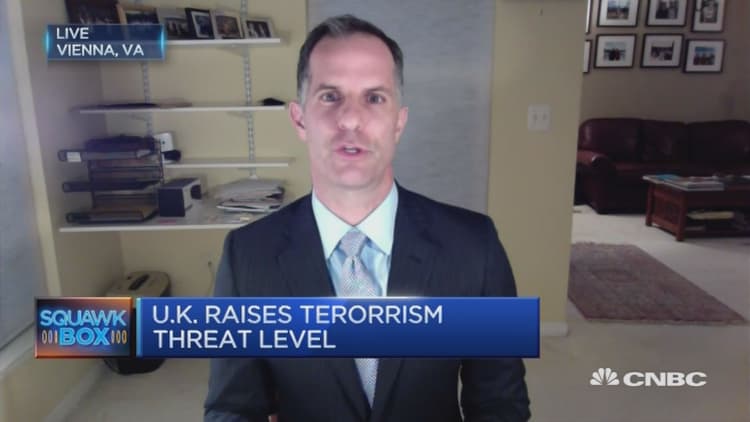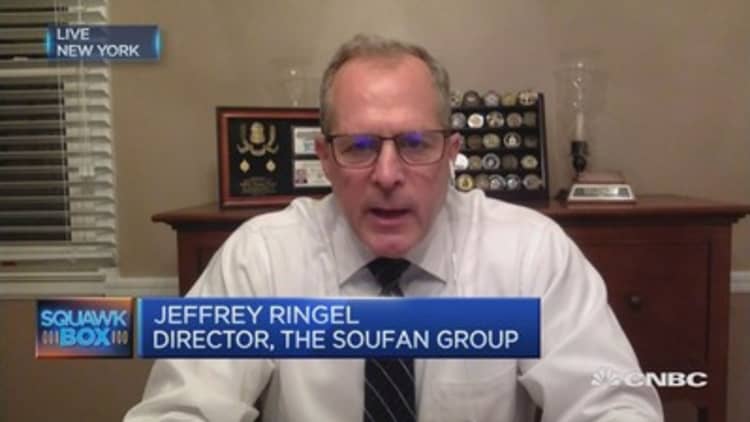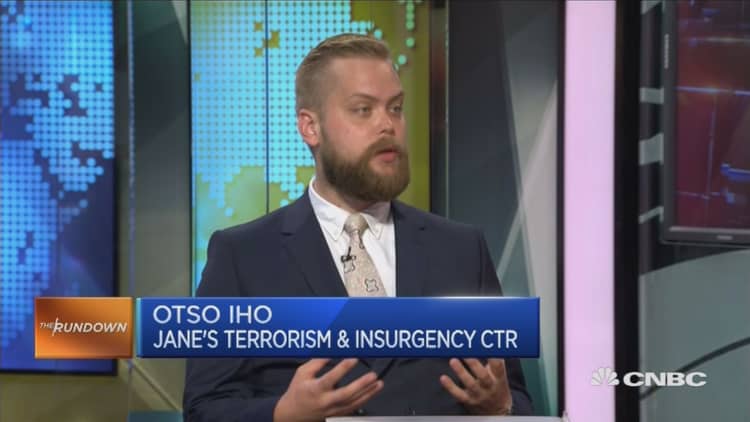


The world's best intelligence services can't always prevent certain kinds of terror operations, strategists warned in the aftermath of a suicide bombing that has rocked Britain just two weeks before a general election.
Authorities simply cannot pick up all terror activities so society must be resilient in the face of what are inevitable attacks, Thomas Sanderson, senior fellow and director at the Center for Strategic and International Studies, told CNBC.
The inevitable onslaughts Sanderson is referring to are lone wolf incidents — terror plots carried out by individuals who lack official assistance from established organizations. These radicalized individuals are often inspired by large networks, such as the , and conduct violence in support of these groups even without receiving financial assistance or resources.
These culprits tend to have a small public footprint and rarely offer hints of attacks unless they speak about it online, Sanderson noted.
The explosion that killed 22 people in Manchester on Monday night — Britain's deadliest bombing in nearly 12 years — is believed to be the work of 22 year-old Salman Abedi, who was reportedly known to security services, authorities said. ISIS has taken credit but it's not clear whether Abedi received any formal training from the organization.
It's increasingly getting harder to pinpoint lone wolfs from ISIS operatives because the international terror cell regularly claims responsibility for attacks that it hasn't directly facilitated but are linked to its ideology.
"This (the Manchester blast) is an example of the difficulty in tracking persons of interest who don't commit a crime until they go operational," said Jeffrey Ringel, a 21-year veteran of the FBI and director at intelligence firm The Soufan Group.
, the group recently instructed international followers to stay away from the Middle East and instead, conduct fights in their respective backyards, Ringel noted, adding that Al Qaeda released a similar message.
The Manchester bombing comes on the heels of April's Champs Elysees shooting and March's Westminster Bridge attack, adding to expanding fears about Europe's security situation, mass immigration and communities that embrace extremist philosophies in the name of Islam.
Britain's terror threat is now at a critical level, while France has been in a state of emergency since 2015.
"The ISIS narrative will continue to inspire lone actors, making homegrown violent extremist attacks and propaganda an enduring threat. Lone actors will continue to maximize impact with low-budget attacks that do not require significant resources or outside training," Vincent Stewart, U.S. Marine Corps lieutenant general and director of the Defense Intelligence Agency, said in a recent statement.
Going forward, European police must reach out more to Muslim communities in the region to generate information on potential threats, according to Sanderson.

